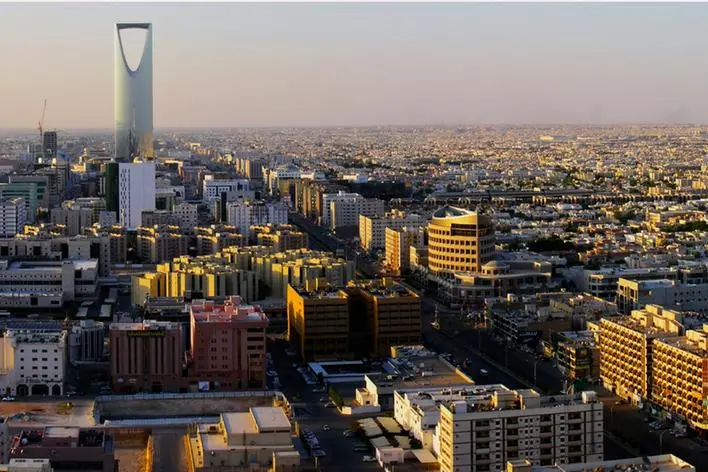PHOTO
RIYADH - Most countries of the world are currently witnessing waves of inflation, which means an increase in the general price level of essential goods such as energy, food, transportation, and clothing, as well as that of services during a certain period of time, which leads to a reduction in the purchasing power of money and an increase in the cost of living.
Almost all governments of the world, including the Saudi government, are exerting great efforts to contain inflation by adopting several solutions, while ensuring these solutions do not have a negative impact on their citizens and their way of life. However, many countries find this as a difficult task for reasons related to the strength of their economies.
In this report, we review the inflation crisis gripping the world and how the Kingdom managed to withstand it during the year 2022.
Causes of inflation
Inflation occurs when the demand for goods or services increases, and their price rises, especially if the economy is going through a stage of recovery, and hence spending increases instead of saving. Inflation also occurs when there is a scarcity of a commodity, and therefore traders raise its price.
The causes of inflation also include a rise in the cost of producing goods and services, and passing it to the consumer, in addition to recent reasons such as the coronavirus pandemic and the war in Ukraine. These obstructed supply chains and made production and export difficult, especially grains, and consequently, there was a skyrocketing of prices, and depreciation of currencies.
Figures of global inflation
Inflation caused price rises globally, as it jumped in the United States of America to 8.5 percent, and more than that in the eurozone countries. Inflation also posed a serious problem for central banks, which aim to achieve 2 percent in line with the annual wage increase. Inflation rates in more than half of the countries in emerging economies are currently higher than 7 percent.
GASTAT monitors price rise
It is the General Authority for Statistics (GASTAT) that continuously announces the rates of price rise in Saudi Arabia. In the second half of 2022, the rate was 2.3 percent in June, it rose to 2.7 in July, 3 percent in August, and 3.1 percent in September, and then it decreased to 3 percent in October.
The percentage decreased again in November to 2.9 percent as the prices of housing, water, electricity, gas, rents, food and beverages, transportation, restaurants, hotels, education and entertainment recorded an increase, while prices for personal goods and services registered a decrease.
Proactive steps to contain inflation
1- Supporting the beneficiaries of social security and the Citizen’s Account Program
A royal decree was issued approving the allocation of financial support, amounting to SR20 billion, to confront the repercussions of price rise globally, of which SR10.4 billion are allocated as direct cash transfers to support beneficiaries of social security, the Citizen Account Program, and the Small Livestock Breeders Support Program, while the rest of the amount was earmarked to increase strategic stocks of essential goods and ensure their availability.
2- Ceiling for energy prices
Minister of Finance Mohammed Al-Jadaan said the main cause of inflation in Saudi Arabia is energy prices and the Kingdom has taken proactive steps to put a ceiling on it and support Saudi Aramco with tens of billions of riyals as compensation in exchange for selling at a price lower than the global price to avoid the impact of inflation on the Saudi economy.
3- Reassuring traders
The Minister of Finance confirmed that traders were reassured to import sufficient quantities of goods to ensure the abundance of stocks. He also highlighted the importance of the private sector which provides jobs and services to the sons and daughters of the country, and the Kingdom relies on it. What happened in terms of price rise and the government’s proactive intervention indicates a different view of the government's functioning.
Central Bank: Inflation within reasonable range
Saudi Central Bank Governor Fahd Al-Mubarak stated that inflation in the Kingdom is within a reasonable range while the Ministry of Finance expected the inflation rate in the Kingdom to be at 2.6 percent in 2022. Despite the global inflation wave, the Kingdom has taken preventive measures against it.
US Federal Reserve
Federal Reserve, the US central bank, seeks to contain inflation by raising interest rates to slow the economy and reduce inflation. When inflation decreases, the bank usually lowers interest rates to stimulate the economy. The bank expects to continue raising interest rates in 2023 by 2 to 3 percent.
International Monetary Fund
The International Monetary Fund (IMF) issued its estimates of inflation rates in various countries of the world. Saudi Arabia stood among the countries with the least inflation rates, as inflation rates in Japan came to 2 percent, China 2.2 percent, and Saudi Arabia 2.7 percent.
Can inflation be reined in?
The factors that lead to a rise in inflation include the problems of global supply chains due to the coronavirus and the war in Ukraine. Central banks can control inflation with monetary policies that include adjusting interest rates to reduce demand for goods and services.
Financial experts and economists say that controlling the money supply and increasing the income tax are other ways to extinguish the fire of inflation.
Is inflation negative or positive?
Experts believe that inflation is not always negative, as it will not have an effect on wages rising at the same rate. But if this does not happen, the value of money will decrease and life will be difficult. At the same time, inflation may be positive for the economy in the event of increasing production, raising wages and increasing jobs, goods and services accordingly.
© Copyright 2022 The Saudi Gazette. All Rights Reserved. Provided by SyndiGate Media Inc. (Syndigate.info).




















